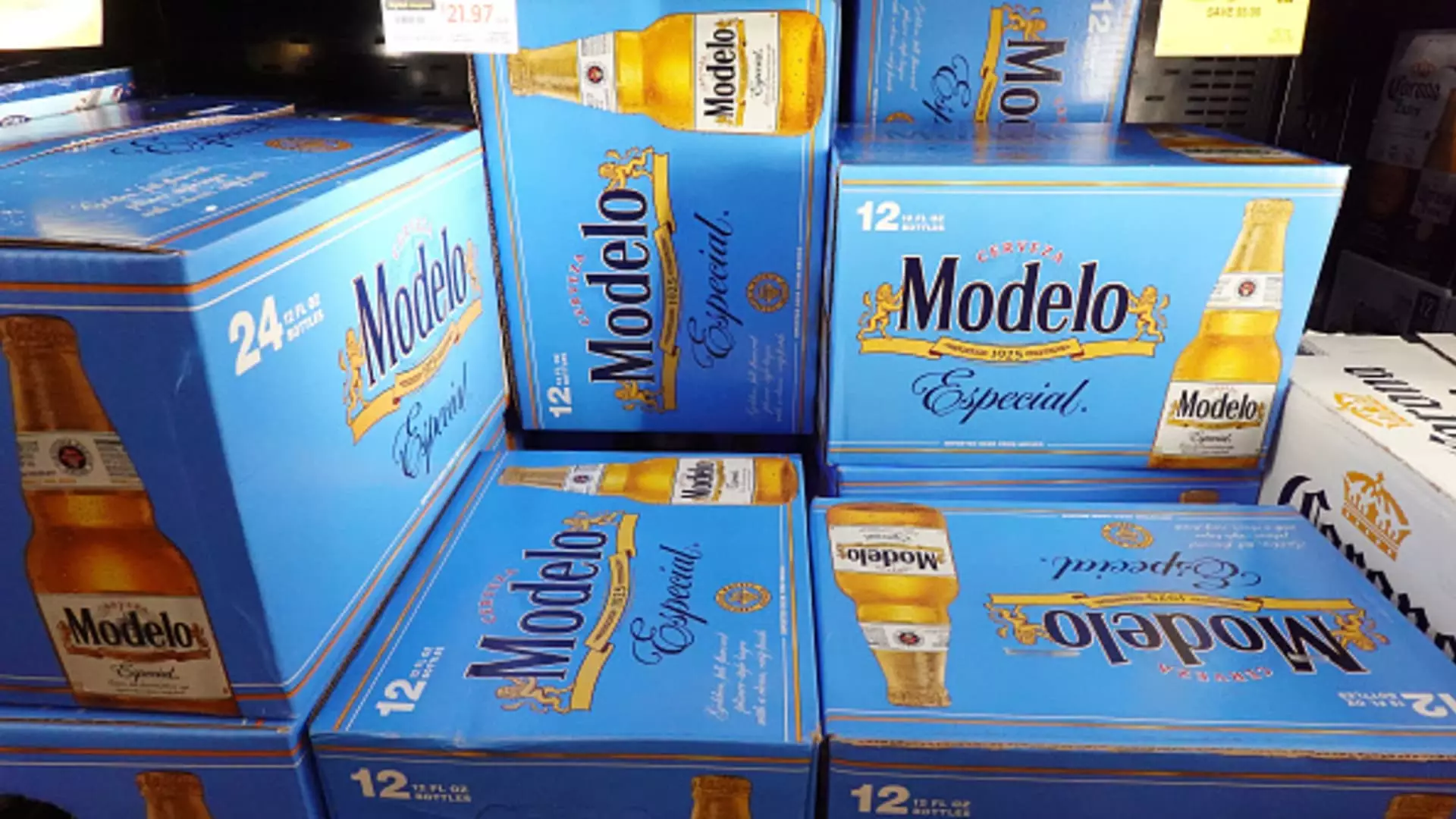In recent years, Modelo beer has transcended mere branding to become a cultural emblem within Hispanic communities throughout the United States. Its growing popularity is not just a result of its flavor, but also its deep-rooted connection to social gatherings and traditions, especially among Mexican Americans and other Latinx groups. Events such as birthday parties, quinceañeras, and family reunions are often marked by the presence of Modelo, underscoring the brand’s significance in these communal contexts. Among its advocates is comedian Rio Riojas, who articulates how Modelo has firmly established itself as a favored choice within his family and social circles. This cultural endorsement speaks volumes about how brands can embed themselves in the social fabric of a community.
Constellation Brands, the company behind Modelo, has identified Hispanic consumers as a crucial demographic that has largely propelled the brand’s ascendancy in the American beer market. Rich data from consumer research firms such as Numerator reinforces this narrative, revealing that Hispanic and Latino customers comprise a staggering 32.5% of Constellation’s beer sales, even though they represent only 19.5% of the overall U.S. population. This indicates a profound loyalty that the brand has cultivated through authentic marketing strategies and community engagement. The ability of Modelo to not just survive but thrive during increasingly competitive times is a testament to this loyalty.
The recent decline of Bud Light, especially following a controversial marketing campaign, has created a void that Modelo has effectively filled. The endorsement from a diverse and growing consumer base highlights the shifting dynamics in the U.S. beer market and serves as a harbinger of the importance of aligning products with consumer values.
Key to Modelo’s success has been Constellation’s strategic approach to marketing—a commitment to portraying an authentic representation of Hispanic culture. The recent campaigns have diversified from primarily Spanish-language advertisements into English-speaking media, showcasing real-life stories that resonate with the Hispanic experience. Efforts such as featuring “abuelas” (grandmothers) in advertisements celebrate familial bonds, while highlighting the resilience and contributions of Hispanic women, especially in Latino car culture, demonstrates a keen understanding of identity and representation.
Alexandra Aguirre-Rodriguez, a business professor, emphasizes how the portrayal of such narratives fosters a deep emotional connection between consumers and brands. This strategic focus on representation not only elevates Modelo’s branding but also enriches its community identity—a hallmark of successful marketing in today’s landscape.
Despite broader economic concerns affecting consumer behavior, Constellation Brands appears well-positioned to ride out uncertain waters due to its stronghold among Hispanic consumers. Analysts have noted the potential resilience of Modelo as these loyal patrons may prioritize spending on brands that align with their identities and heritage over other discretionary expenses. Even in light of challenges such as inflation and rising interest rates, these loyal customers are likely to continue purchasing their beloved Modelo.
Management has articulated hope for improved employment rates within the Hispanic community, which may further enable spending on Modelo, reinforcing its foothold. However, potential tariffs and other economic pitfalls raise concerns, underscoring the need for the brand to remain agile in navigating these challenges.
Looking forward, Constellation is not resting on its laurels. The company is expanding its product offerings, tapping into flavors that evoke nostalgia for Hispanic consumers. The new Modelo Agua Fresca line, inspired by traditional Mexican street drinks, aims to further engage and expand upon the drink options available to this community. By listening to consumer preferences and actively seeking to innovate, Constellation exemplifies a brand that not only sells a product but fosters cultural experiences.
Moreover, at personal gatherings, such as those attended by individuals like Riojas, Modelo continues to play an integral role. Items like “Micheladas,” which incorporate Modelo beer with various ingredients, exemplify how the brand is interwoven into the very fabric of social customs. As Riojas notes, gifting a box of Modelo during social events signifies more than just tradition—it’s a gesture of community and shared identity.
Modelo’s ascent in the beer market is not merely a case of successful marketing; it speaks volumes about cultural identity and social connections within Hispanic communities. The brand’s ability to adapt while maintaining authentic ties to its roots positions it as not only a beverage of choice but also a symbol of community and heritage. As it continues to evolve and engage with its consumer base, Modelo stands as a powerful example of how businesses can create lasting relationships through understanding, representation, and a strong commitment to cultural values.

